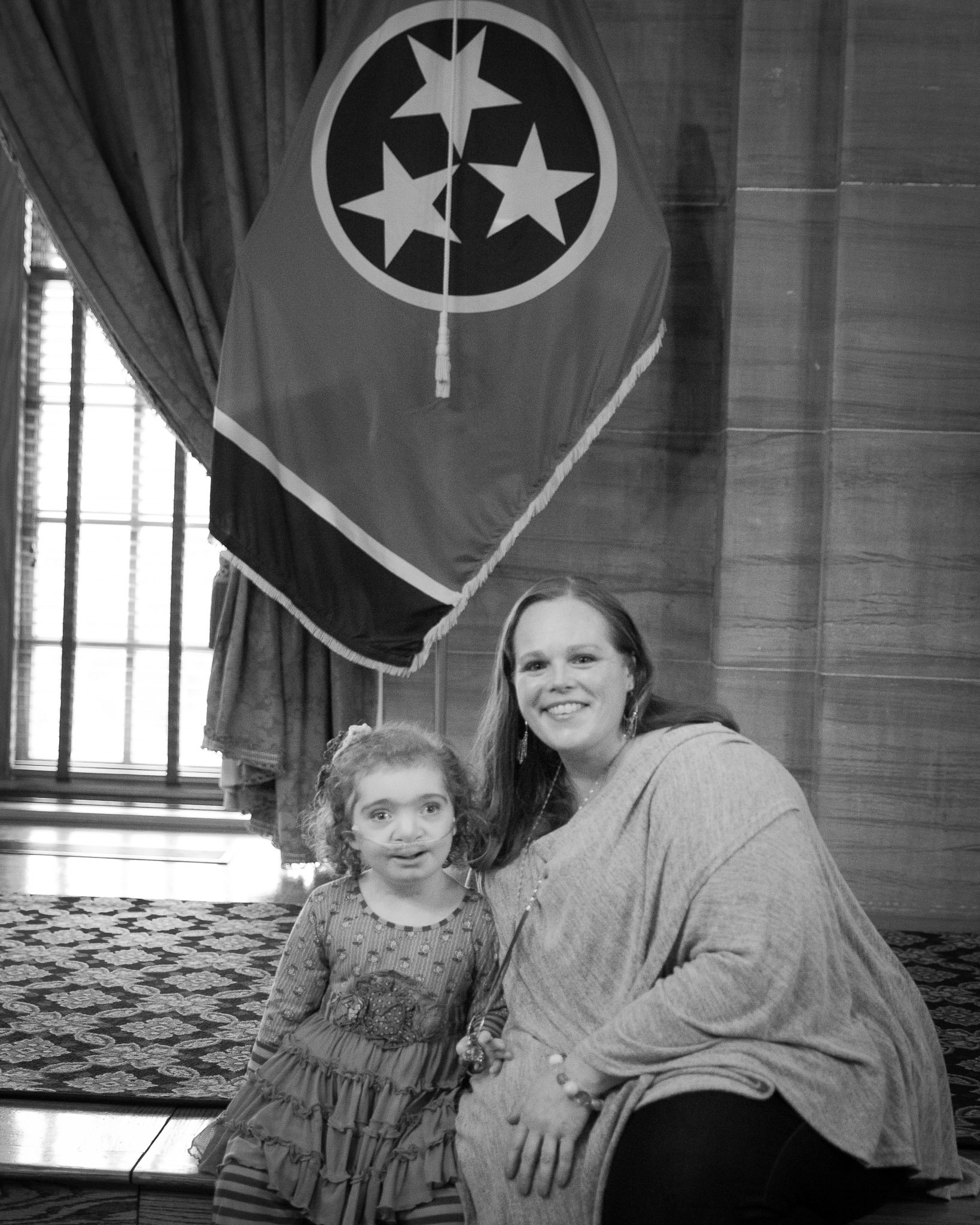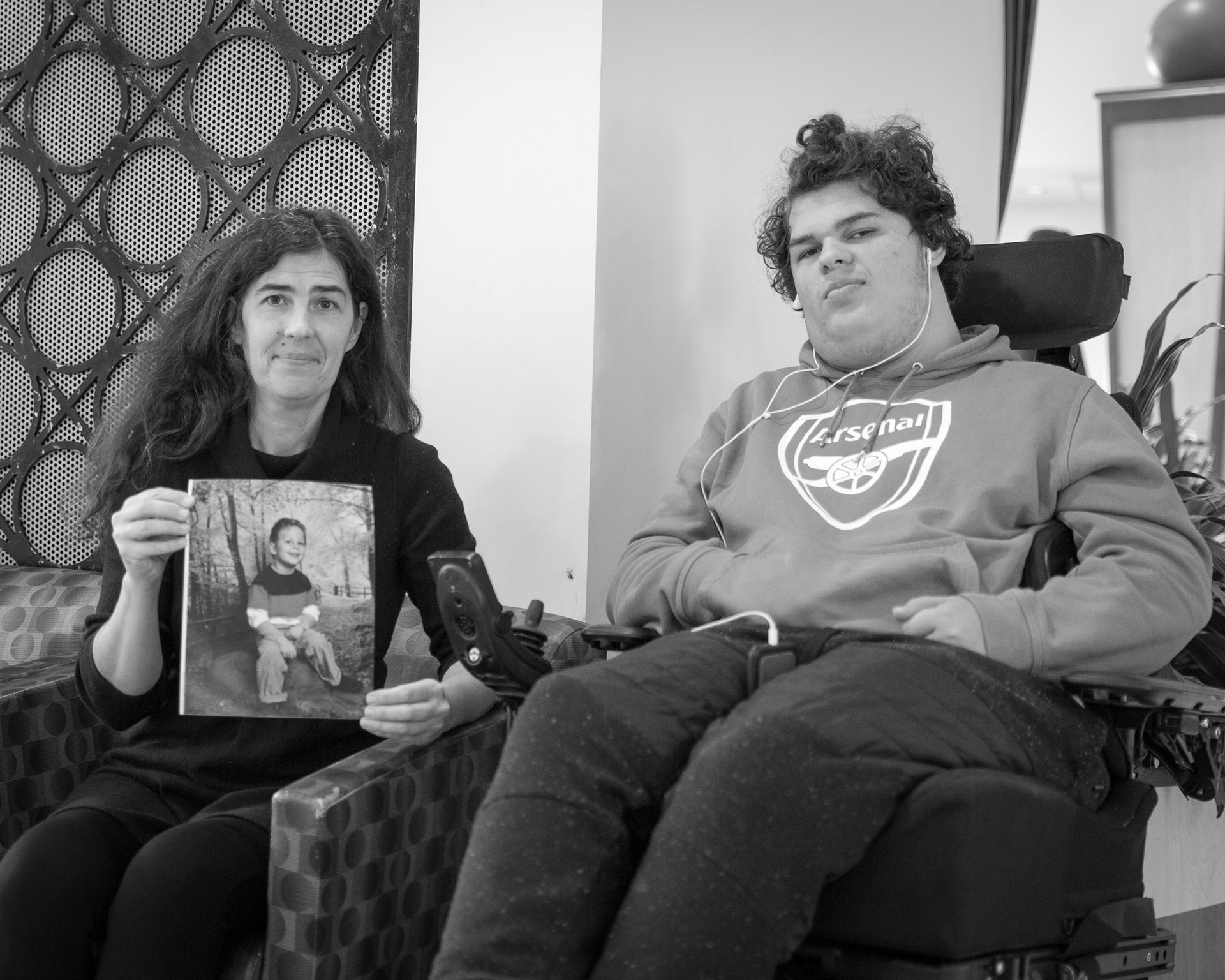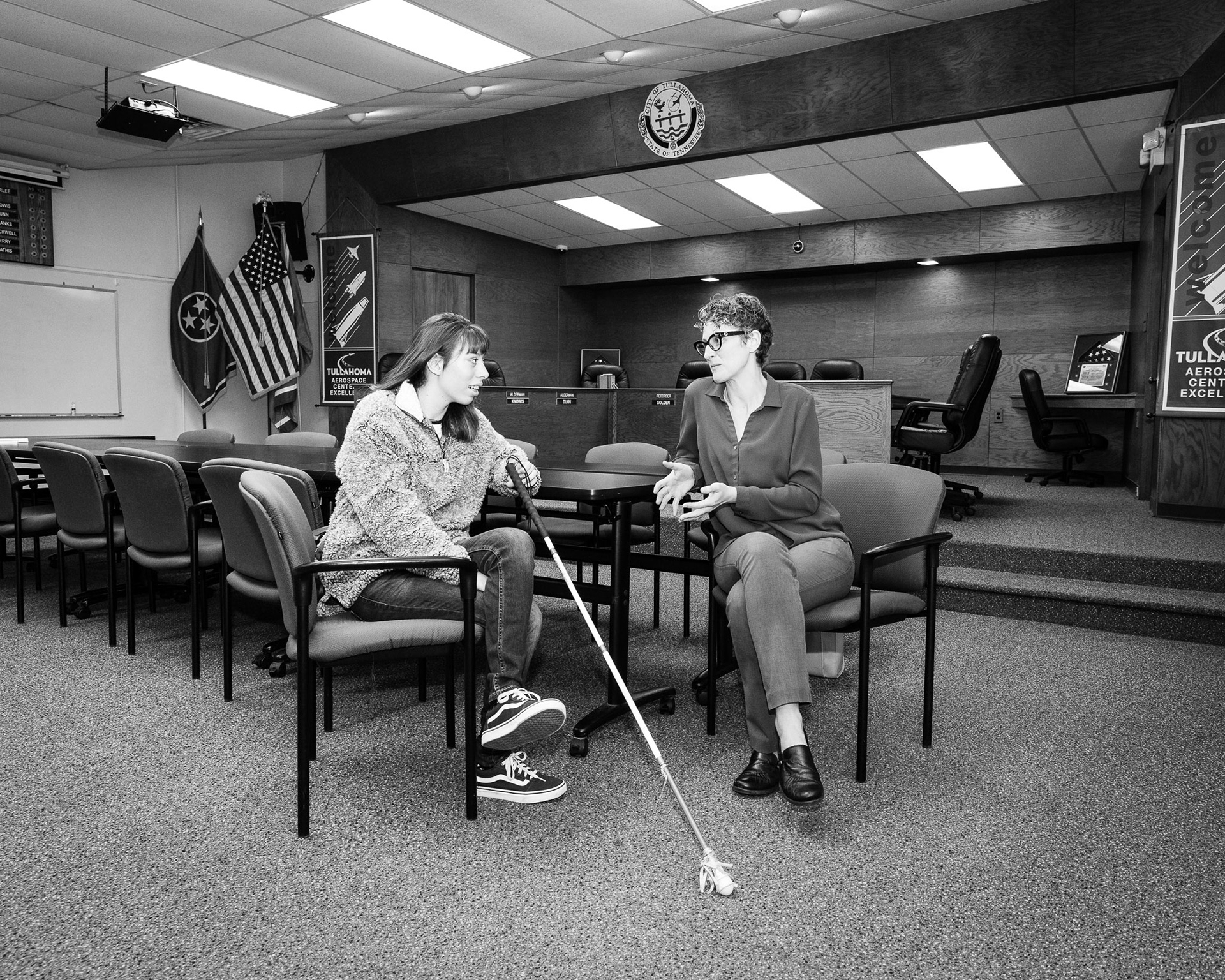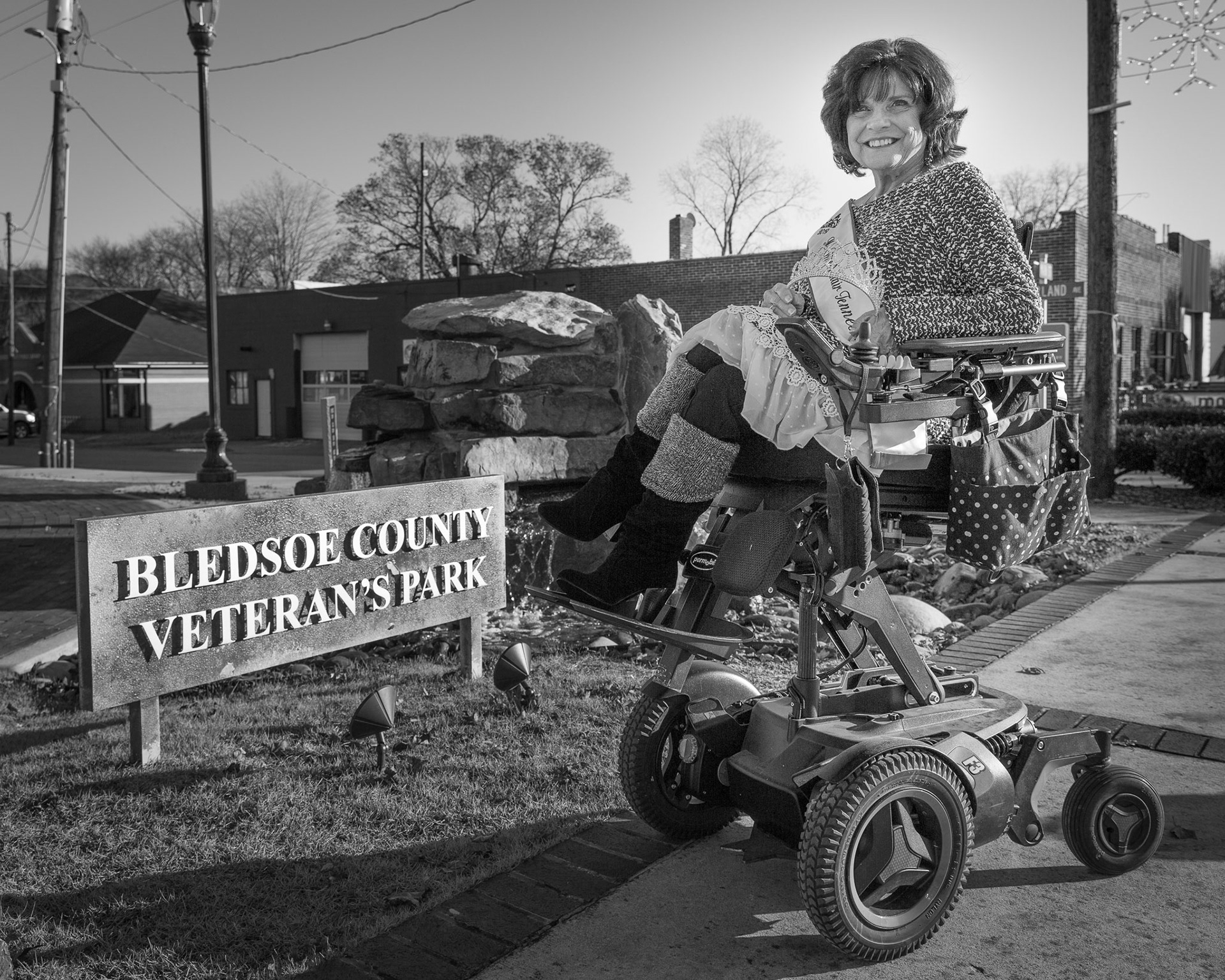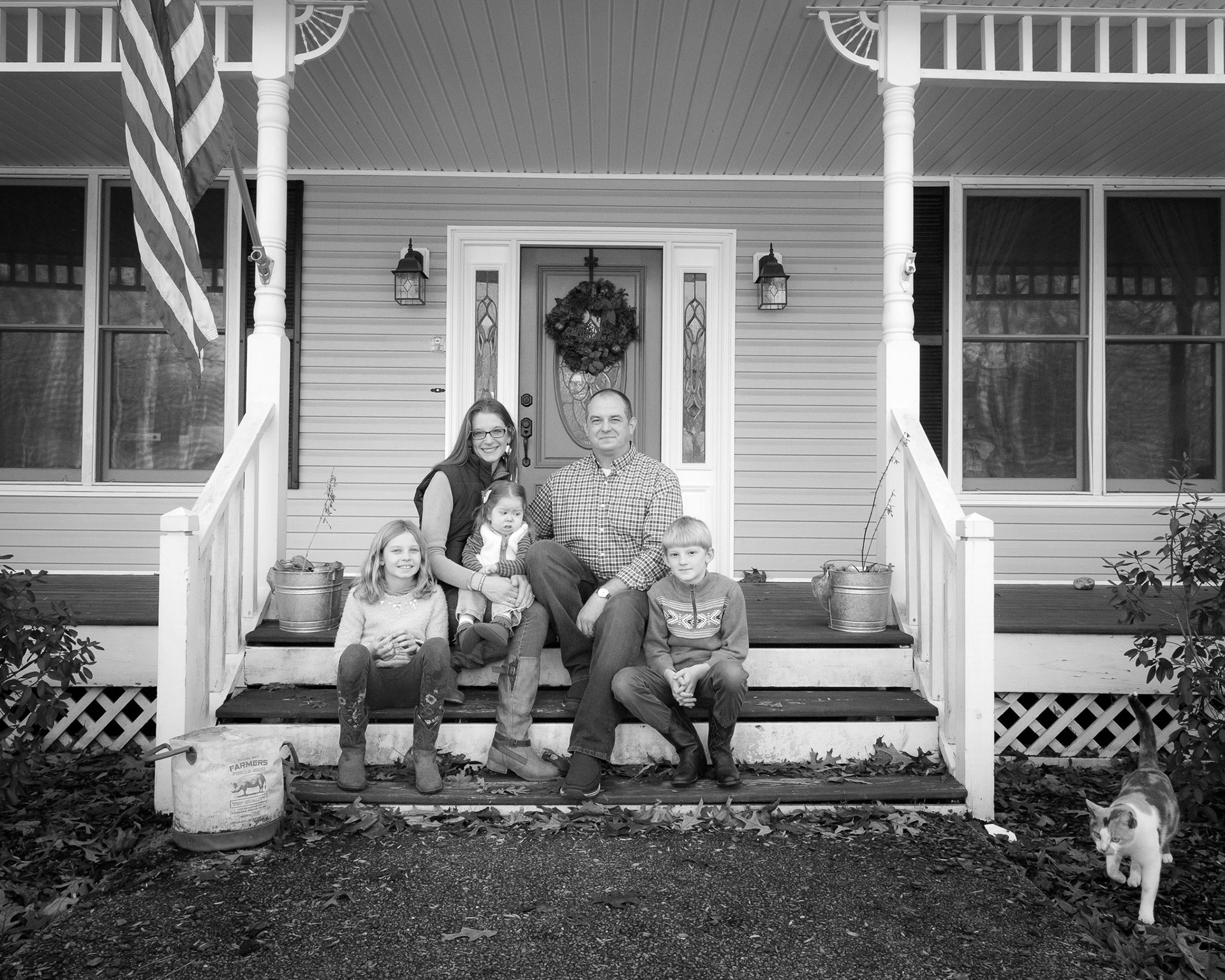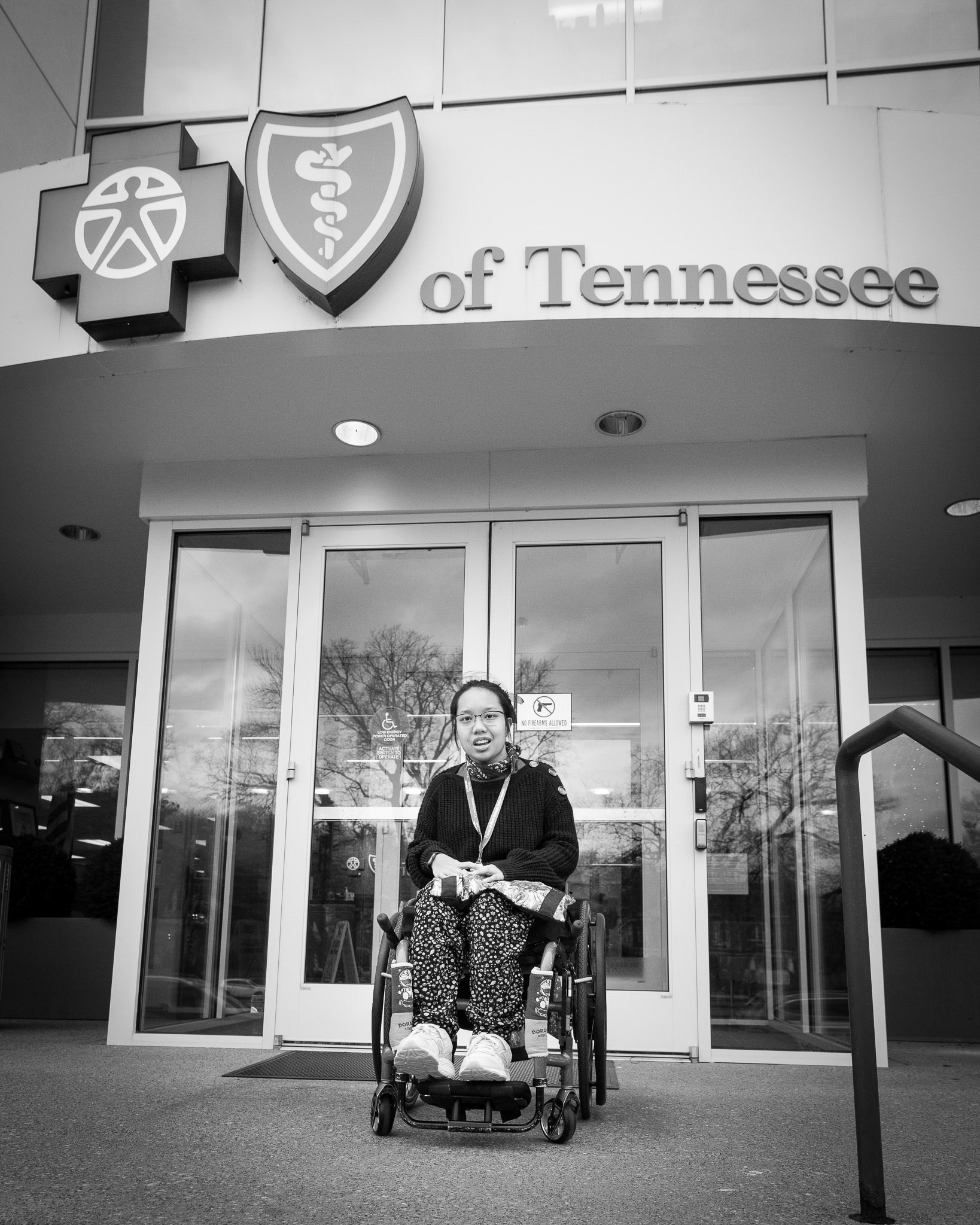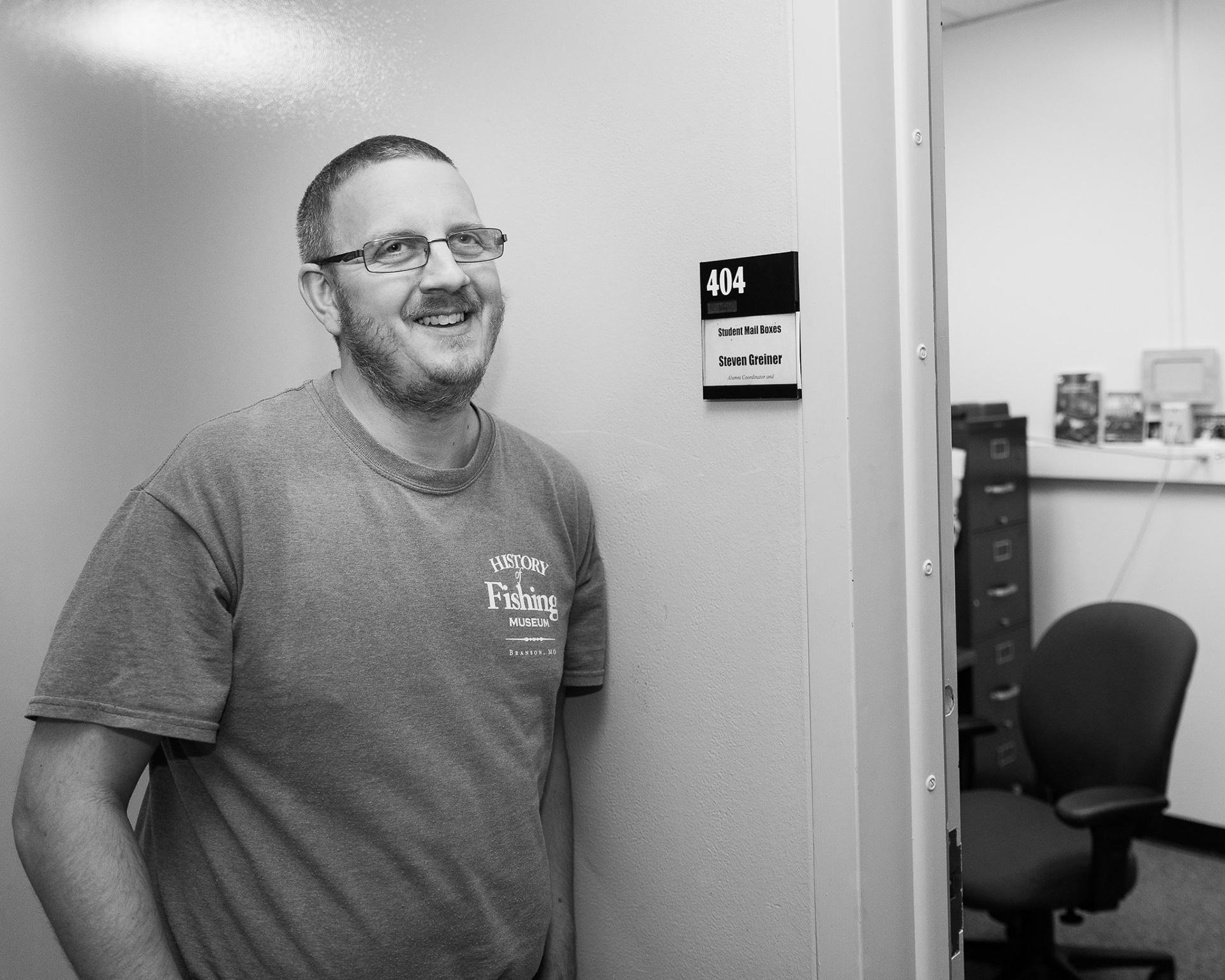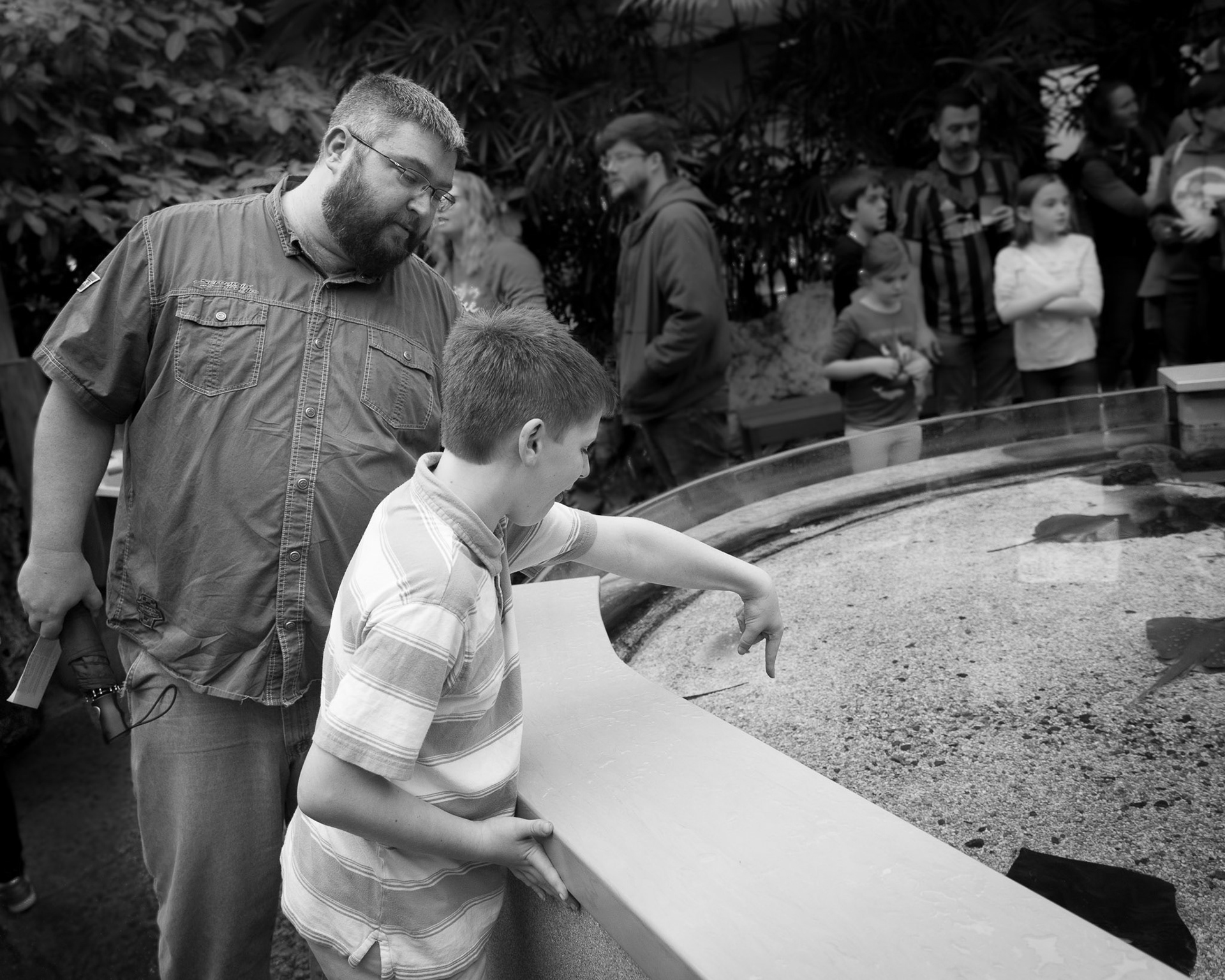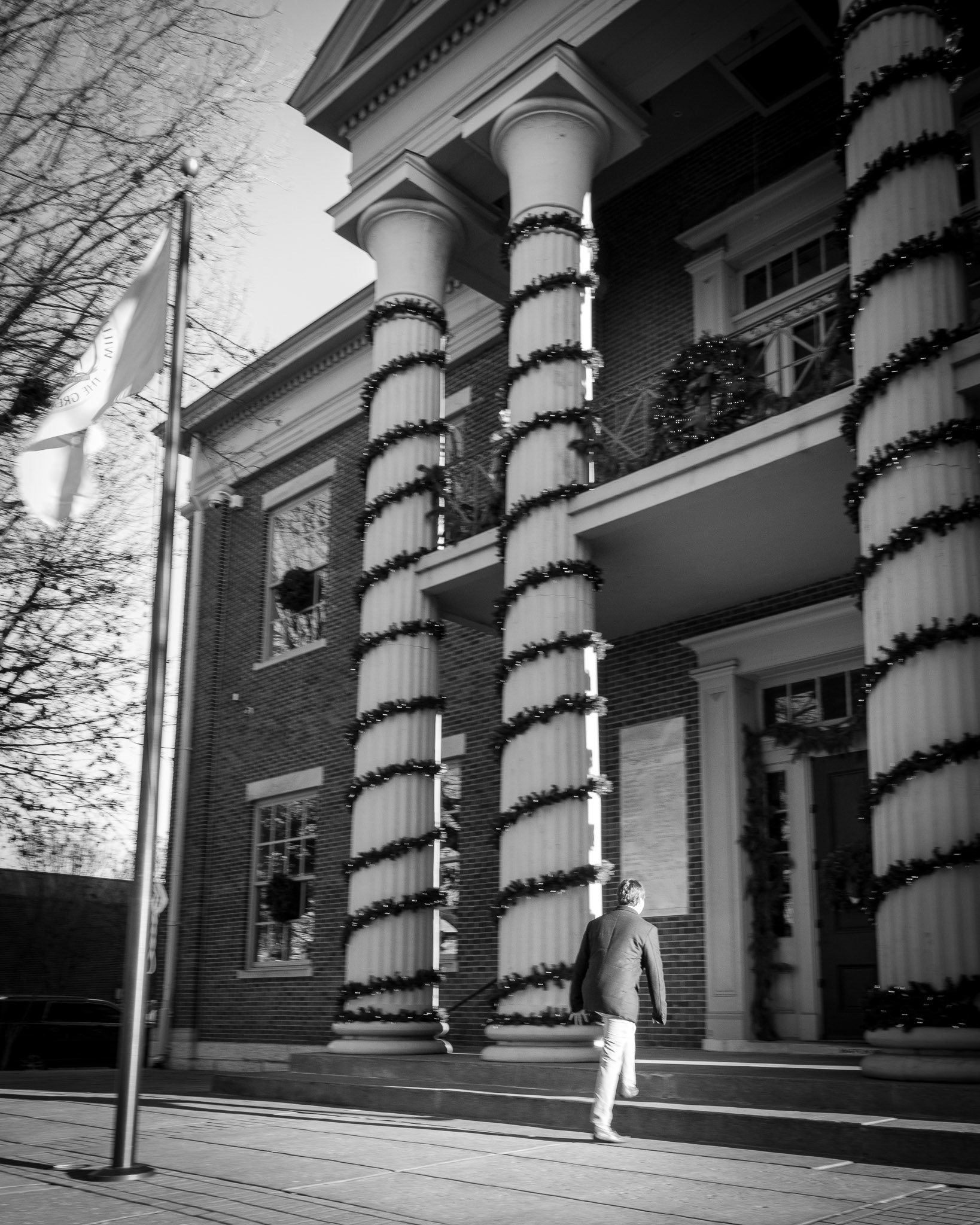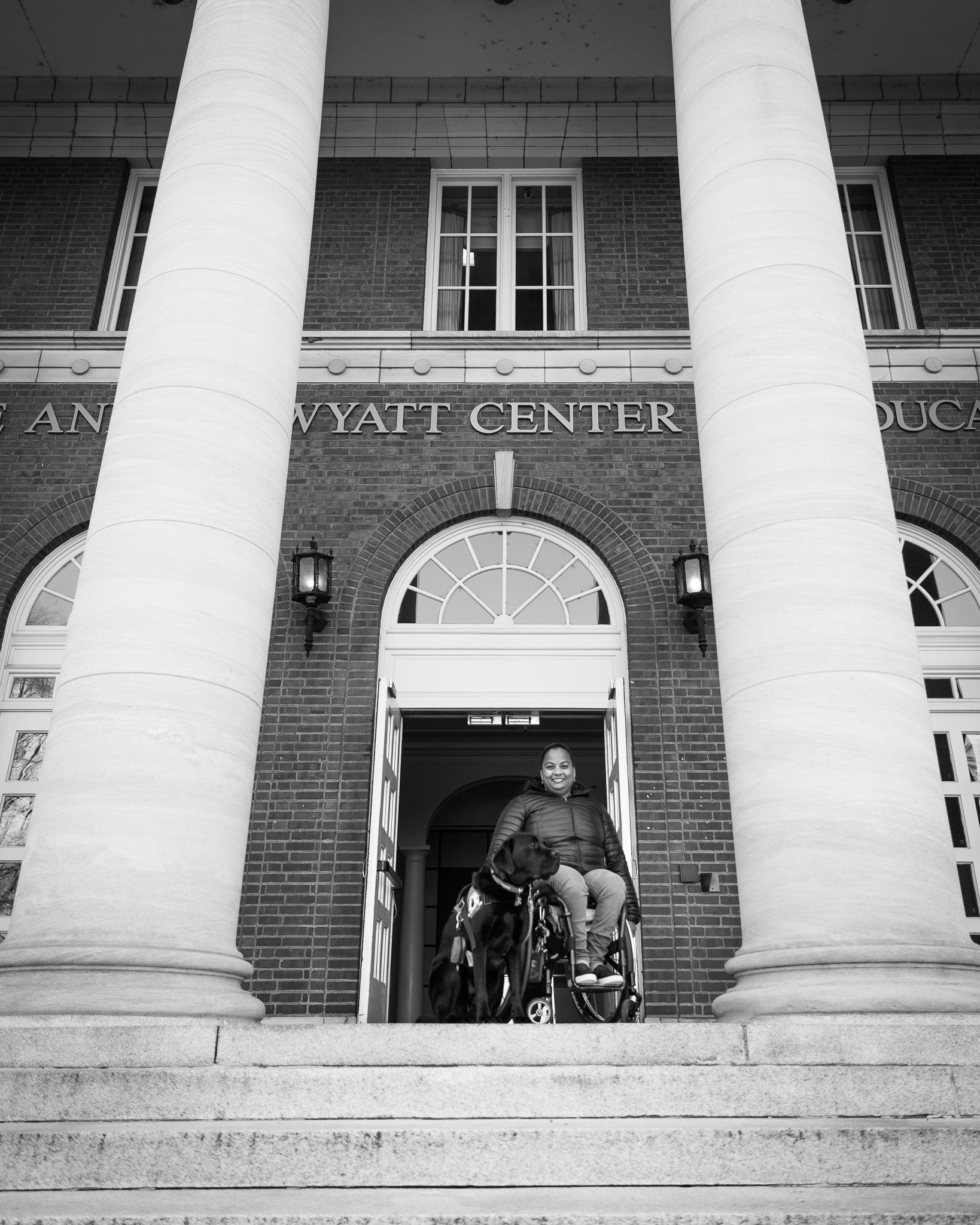Tennessee Kindred Stories of Disability is project of the Vanderbilt Kennedy Center (VKC) Public Policy Team. Each year the VKC and The Arc Tennessee collaborate to produce a collection of stories that highlight the challenges individuals with disabilities and their families face as they navigate service systems and supports. Booklets are shared with Tennessee legislators during Disability Day(s) on the Hill and the Disability Policy Seminar in Washington, D.C., to educate them with first-hand accounts from constituents in their districts.
As the founder and director of AbleVoices, I was proud to collaborate with VKC and The Arc Tennessee to create the photographs for the Kindred Stories 2020 booklet. This collection of photographs showcase Tennesseans with disabilities and their families who are using their voices to vote, to educate legislators and policymakers, and to stand up for their own rights and for the rights of others. These advocates shared their civic engagement stories (see excerpts accompanying photos) with Vanderbilt University graduate students as part of the Tennessee Kindred Stories of Disability project. The project gives future educators, advocates, and researchers an opportunity to learn firsthand from families. It gives individuals with disabilities and families an opportunity to educate future disability leaders and their elected officials, and it gives legislators and policymakers an opportunity to understand the impact their decisions can have on their constituents’ lives. To download the Kindred Stories 2020 booklet and view other editions, please visit TN Kindred Stories. To learn more about AbleVoices, visit www.ablevoices.org.
Photographs © Jen Vogus | AbleVoices
AbleVoices Photography Assistants:
Bryant Welch, Ashley Shouse, Kyler Grissom, Eric Wilson, and Sami Zinni
Bryant Welch, Ashley Shouse, Kyler Grissom, Eric Wilson, and Sami Zinni
Asher
As told by Michelle (mother)
Our advocacy journey began in February 2019 at TN Disability Day on the Hill, when we met with our legislators and shared our family’s story. Our leave-behind information sheet was titled, “No one anticipates a medically complex child.” Each person we met with wanted to know Asher’s history and to understand how we navigate everyday life. In March, I was asked to testify at the TennCare Subcommittee hearing about the significance of the Katie Beckett Waiver for children with complex medical needs and disabilities.
In April, a fellow parent advocate organized a rally to increase community awareness for the need of a Katie Beckett Waiver. Asher and I, along with many other families, shared our stories about why this waiver is important. We flooded social media and connected with the news media. The Katie Beckett bill passed the House and Senate and was signed into law by Governor Bill Lee in July 2019.
Ethan
As told by Roddey (father)
I communicate often with our elected officials and believe it is important for others to do so, too. They are not mind readers and in order for them to know what we want, we have to be able to communicate that to them.
My son is now 13 years old. Thirteen years ago I didn’t know what autism was or anyone affected by it, and so I think it is important to educate elected officials on the effects that autism may have in their community. I would like to encourage people to be themselves—becoming involved and communicating with elected officials is not for everyone, but everyone has a right to be engaged.
Anjali
I am an advocate for disability issues. An activist. I did not seek to be one, it found me. An activist to me, is someone who not only stands up for their own rights, but also educates others.
One of the earliest challenges that I experienced here in Nashville was accessibility at the polling booth. My assigned precinct was inaccessible. It was an older church, and there is a step to get up to the sidewalk, and then there is a super steep—not at all safe—hill to get into the basement of the church where the polling takes place. But, there was no way to indicate to the polling staff that it was not safe, that I needed help. It was a very frustrating experience that I did not want to just ignore. I began working with Disability Rights Tennessee to address the issue of accessibility at polling centers.
Disability affects all of us in different ways. It is not until it impacts one on a personal level that it will be on the forefront of their minds.
Peach
People need to know what they need, how to get it, raise their voice, and say something. I’ve met with Senator Jack Johnson to talk about transportation. I made a list and my dad helped me practice an elevator speech to make points on what I wanted to talk about. He listened to me. We also talked about employment for kids with disabilities, getting the right jobs, and asking for accommodations.
It’s important to advocate for better transportation for people with special needs. If there are steps, you cannot exit the bus. It’s hard when there is no elevator. Accessible parking is helpful when there is construction. Ramps are also very helpful. Know your situation and speak up for yourself when you need it—don’t be shy!
Albert
As told by Gabriela (mother)
Although Albert is not yet at the voting age, we are somewhat a dynamic duo when it comes to civic engagement. We perceive voting as a basic right and responsibility of every member within a functioning society. Voting is our voice. When voting, disability rights are a major contributor to how we make decisions and ask for change from candidates. If a candidate does not see the extensive needs of our family, it sometimes affects my vote.
It starts from these stories, it starts from the people. I need to speak to these people to support Albert and people like him. We don’t want to be silent anymore. We want to put our story out there and for people to know exactly what it is we are experiencing. We need people to know Albert’s story.
Cyndi
My position as Ms. Wheelchair Tennessee opened doors to talking with our lawmakers. Recently, a woman reached out to me on social media about the fact that there was no automatic door at the Court House in our county. I called the Mayor’s office and set up an appointment. Shortly after, I sat down with the mayor to express the concerns of the residents. The automatic door was installed within a couple of weeks. I stress to others with disabilities the importance of advocating with city officials. In my experience, lawmakers want to help but need to be educated to really understand the issues, find funding, and make things happen. If we do not make them aware, it will be ignored. This can be a slow process, but I keep the conversation going to ensure that it will happen. I strive to make our legislators aware that these types of barriers strip people with disabilities of our independence.
Adelaide
As told by Dr. Rondi (mother)
My family saw a news story about a similar family with a child with significant disabilities. The family shared that they were about to lose insurance coverage because their middle-class income exceeded income requirements for assistance. We reached out to the news station to thank them for covering this issue and told them about our similar experiences and struggles. The next day we had news crews reach out to us, wanting to talk about our family’s experience in not being able to access the nursing care we desperately needed.
This small act snowballed into our family attending other civic engagement events like Disability Day on the Hill, and forming a group of families deeply invested in advocating for their children with disabilities. One person really can make an incredible impact on the world. Although Adelaide is not yet able to talk, her voice has most definitely been heard by the legislature.
Steven
What originally got me interested in voting was my involvement as a college student in Next Steps at Vanderbilt and at events like Disability Day on the Hill. Having a time to talk to elected officials is important because it helps them understand where you’re coming from and vice versa.
Now I work at Next Steps and I meet with students before Disability Day on the Hill to help them prepare to talk to officials about various issues. I’ve also created videos about students engaging with their elected officials on Capitol Hill.
Tom
The first time I became politically conscious was during the 2008 presidential election. I registered and knew who I wanted to vote for. I paid attention to which candidates indicated interest and care towards the topics that I was passionate about in order to make my decision. I needed help from my parents with transportation, but I did my own thing while I was there, and I got a sticker after I voted.
I really try to stay up to date regarding politics, because I believe an informed constituent is a constituent that can vote more effectively. In my opinion, voting is one of the most important duties a citizen has. Personally, I pay attention to the news and the disability community.
